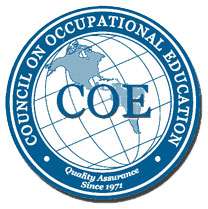Those looking for a stable career that pays up to $45 per hour may consider becoming a vocational nurse. These experts work directly with patients who are sick, injured, or disabled. The close contact with those in need of help makes this a rewarding career path for those who want to make a difference.
Before becoming a vocational nurse, though, there are some skills you’ll need to excel in a medical environment. Read on to learn some qualities that you’ll need to hone before providing quality patient care.
Clinical Knowledge
A licensed vocational nurse (LVN) interacts with patients regularly. They frequently help patients in physician’s offices and community health clinics, but they’re also found in schools, residential facilities, mental hospitals, and home healthcare services.
Those in this career will have varying responsibilities depending on where they work. LVNs usually monitor and report on patient’s vital signs including heart rate and blood pressure. They change bandages, take temperatures, and perform other routine checkup-related tasks.
In residential care facilities or long-term hospitals, an LV will also help patients dress and bathe. They may also watch blood transfusions to make sure they go smoothly, insert catheters, and assist with mobility exercises to get patients back on their feet.
Compassion and Empathy
Regardless of your specific LVN responsibilities, a core part of your job will be keeping patients informed and comfortable.
You’ll need to emotionally connect with your patients to do this effectively. Patients are frequently in pain, and those who are not may be stressed, anxious, and confused. It’s important that you put yourself in their position and treat them in the way that you would want to be treated.
This requires empathy, but it also requires compassion. You need to listen actively and attentively to the patient’s feelings and concerns. You need to provide them with the emotional support needed to get through their treatment seamlessly.
Communication Skills
Part of the reason that empathy is so important is your role in the clinician’s office. LVNs will usually be the first person that new patients talk to. In routine or 24-hour care facilities, you will be the person that patients likely interact with most frequently.
As a result, good communication skills are essential for vocational nurses.
You need to be able to effectively tell patients what you’re doing during their treatment. You’ll need to answer their questions knowledgeably and keep them informed. You also will likely need to give people clear-cut directives on how to move and behave during treatment processes.
But patients aren’t the only people you’ll need to communicate with.
A LVN is often a liaison between the patients and doctors. Because of this, you’ll need communication and collaboration skills so you can relay information to doctors accurately. Precision is important in medical settings and miscommunication can cause a plethora of serious issues, so honing communication skills is key.
Multitasking
Diverse job descriptions mean that vocational nurses need to balance a wide range of tasks. Demanding workloads mean that you need to be able to prioritize activities based on what’s most urgent. You need to be able to keep patients’ needs met quickly and efficiently.
This means juggling several tasks at once. You’ll need to keep track of multiple patients, communicate with several different clinicians, and file documents for multiple people in an organized way.
Part of multitasking is also staying focused and alert in situations with a lot of pressure. You can’t get stressed out and shut down. You need to channel your energy into staying calm and completing many activities.
This is challenging, but luckily it becomes easier with practice. You can learn skills to help you multitask while training for a career as an LVN. You’ll learn even more while on the job.
You also need to manage your time effectively in the long term. This means prioritizing tasks and ensuring that you have ample time to complete each one before the deadline.
Precision
Precision is extremely important for LVNs. One reason for this is that vocational nurses need to monitor the conditions of patients. They must document even minute changes to vital signs and small alterations to the symptoms they’re presenting. A strong eye for detail can mean finding issues early on so they don’t worsen and cause future health issues.
You can literally save lives by learning to be precise and detail-oriented. Taking a healthcare course and getting certified is the best way to gain these skills. This is especially true in a medical setting.
You also need to be precise when it comes to documenting patient visits, information, and medical records. Information needs to be stored in specific ways to remain HIPAA-compliant. Mistakes can mean costly lawsuits or government fees.
If you file things correctly, you also will help others in your medical practice save time. They will be able to access patient records easily at the click of a button. You won’t need to worry about things getting lost or having to dig through files for hours just to find a single record.
Flexibility and Willingness to Adapt
Emergencies arise all the time in medical settings. Patients will come in seeking immediate treatment. Old patients will have symptoms that change unexpectedly.
This is completely normal, but an LVN needs to be prepared for these complications.
Keeping a flexible mindset and adapting seamlessly to different situations can help you succeed. Don’t box yourself into one rigid mindset or only let yourself do things one way.
Instead, keep an open mind. Change along with the situations around you. This is how you can be the best vocational nurse out there.
Become a Vocational Nurse ASAP
Now that you know some critical skills that every vocational nurse needs, it’s time to begin your journey toward giving quality patient care. Healthcare Career College is committed to offering classes to give you the clinical expertise and life skills needed for success.
Our 14-month class also offers job placement assistance once you complete the curriculum, so apply now to kickstart your nursing career the right way.



